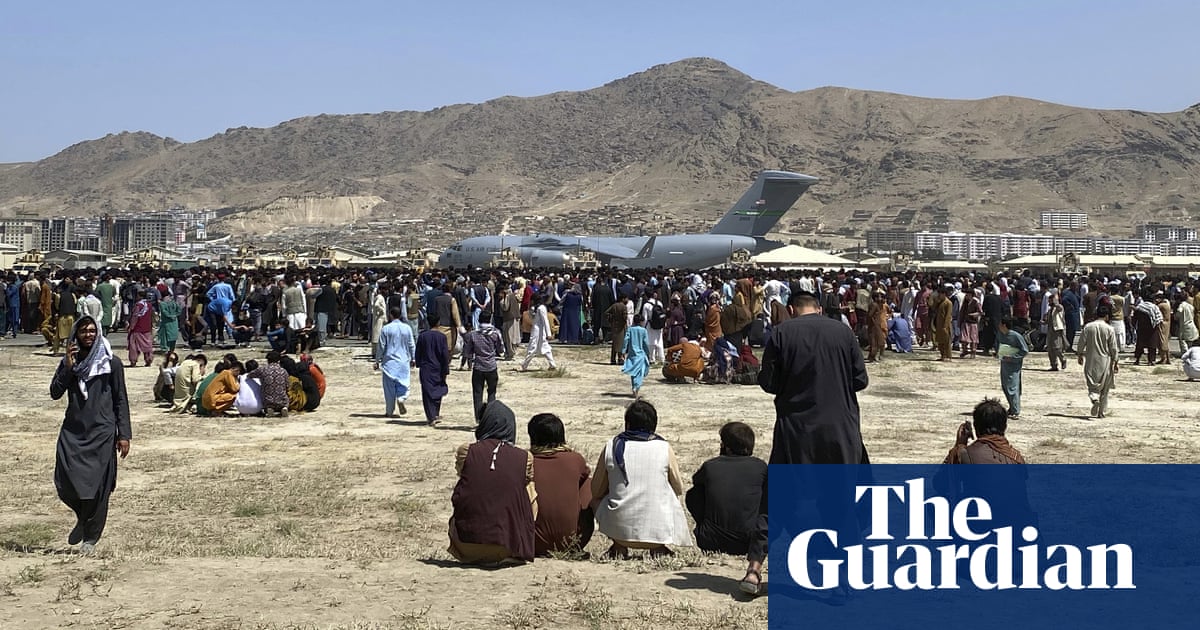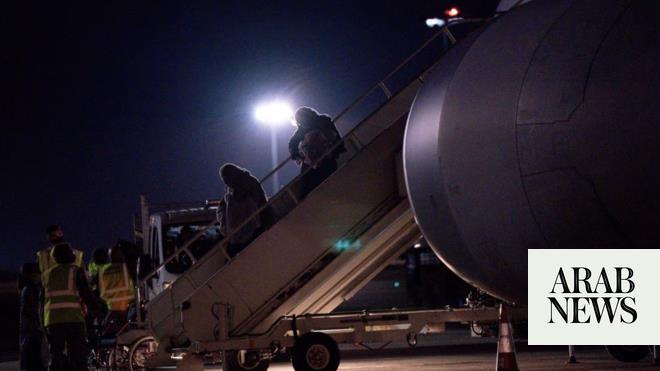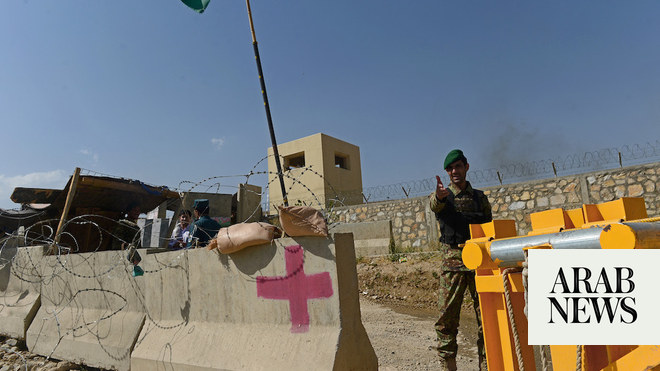
Several thousand Afghans who helped British forces before the withdrawal from Afghanistan in 2021 remain stranded and at risk from the Taliban because of failures of the government’s settlement schemes, according to a damning report by MPs.
The defence select committee’s report urged the government to set out what action it is taking to ensure safe passage to the UK for at least 4,600 Afghans, including interpreters and contractors, who worked for UK forces.
Its chairman, the Conservative MP Tobias Ellwood, said: “The withdrawal from Afghanistan was a dark chapter in UK military history. For the Afghans who cooperated with the UK, and the British troops who served in the country, the nightmare is far from over.
“They are at risk of harm as a direct result of assisting the UK mission. We can’t change the events that unfolded in August 2021, but we owe it to those Afghans, who placed their lives in danger to help us, to get them and their families to safety.”
The government set up the Afghan Relocations and Assistance Policy (Arap) run by the Ministry of Defence (MoD) and later the Afghan Citizens’ Resettlement Scheme (ACRS) run by the Home Office.
The MoD told the committee that 6,600 people had been relocated by last November under Arap. But it admitted that a further 4,600 Afghans who were eligible under the scheme had not been helped.
The committee highlighted three key failings:
A lack of preparedness for the number of potential applicants resulting in under-resourcing, backlogs in applications, and errors in decision making.
Poor communications with applicants causing stress to them and increasing correspondence to MPs and others.
Unclear and frequently changing eligibility criteria.
The committee said the scheme was “still letting down many who risked their lives and their families’ safety by working for the allies or the Afghan authorities.”
The Sulha Alliance, which is campaigning for stranded Afghan interpreters and others, told the inquiry that the Home Office had rejected the visas of some applicants who were told to relocate by the MoD. It said: “The building of hope by one UK governmental department before a rejection by another has meant that the approach has been disjointed. It has resulted in some interpreters selling their homes and packing up their lives because they had believed that they were being evacuated; in others, it has resulted in a sense of anger and rage.
The report said: “While it was never going to be possible to evacuate everyone who met the eligibility criteria as part of the operation, there was an obvious lack of effective coordination across government, with real and painful human consequences for those who reasonably expected to be evacuated but were not. The processing and prioritisation of potential evacuees … could and should have been much further advanced by the time that the need for the evacuation became urgent.”
It added: “It is concerning that according to the MoD’s own estimates, several thousand eligible Afghans – whose safety is by definition at risk in Afghanistan – remain to be evacuated under the Arap well over a year after the end of [the withdrawal] operation. We recommend that the government set out in their response to this report what action they are taking to ensure safe passage to the United Kingdom for eligible Afghans who remain to be evacuated under the Arap.”
The committee’s report comes after the foreign affairs committee highlighted “serious and avoidable failings” in the chaotic withdrawal. The defence committee said it “commended their description of events”.












